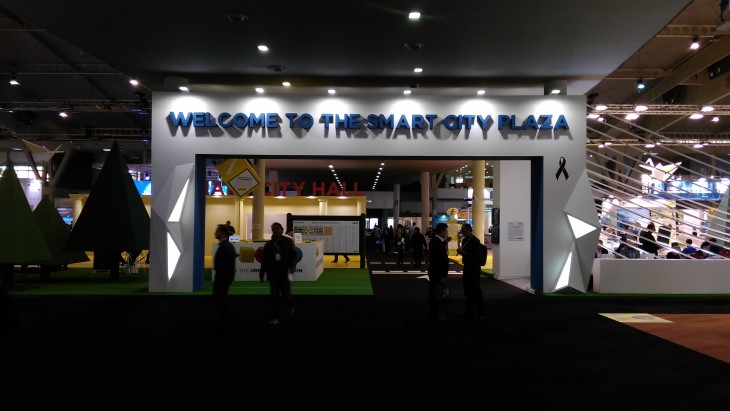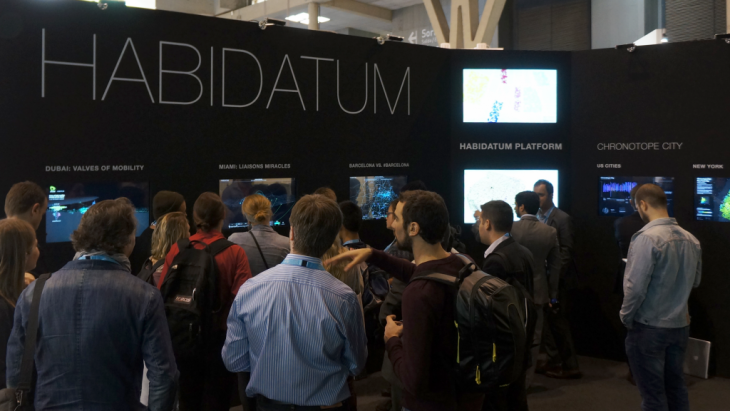From November 17th to 19th, MaCT students joined the Smart City Expo World Congress, which took place in Barcelona.
The SCEWC is a meeting point for companies, government, entrepreneurs and research centers to show, learn, share, network and gather inspiration to support the development of the cities of the future. The three-day-event is made of a congress, an exhibition and some parallel side events and activities.
The 2015 edition was the bigger ever and gathered in Barcelona more than 14,288 visitors, 3,661 delegates, 485 exhibitors and 400 speakers coming from 92 countries and 568 cities to share the latest thinking on current and future issues related to urban growth.
Cities with their own stands to showcase their projects and solutions included Adelaide, Istanbul, Hamburg, Helsinki, Jerusalem, Kyoto, New York, Paris, Singapore, Tel Aviv and Vienna. The show was also being attended by government delegations from South Korea, Estonia, Denmark, India, Mauritius and the United Kingdom.
In addition, several companies showcased the latest urban solutions as well as the different platforms for integrated smart city management. The company profile ranged from start-ups – with around 70 in attendance – to multinationals such as Amazon, Audi, Airbnb, Cisco, Engie, FCC, Ferrovial, Fiware, Google, IBM, Microsoft, SAP, Siemens, Telefónica and Thyssen-Krupp.
MaCT students enjoyed their free pass to attend to some talks of the congress programme, which was divided into six core themes: technology, society, governance, sustainability, mobility, e innovation & startups.
But for many of them the most interesting part of the event was the exhibition, were they could see some technologies and inventions that will shortly form part of our everyday urban landscapes.
Some of the solutions on show included an electric driverless minibus, an app for identifying obstacles and warning the sight-impaired by smartphone, all kinds of services performed by drones and a warning system that identifies shots, locates them and warns the emergency services.
One of the areas with the most solutions was the Smart City Plaza, a space that replicated on a real-life scale a tiny portion of a city, featuring around twenty implemented and operational technologies. Students found very interesting to see the real application of some solution that they know from a theoretical point of view in their master studies. Everyone was searching for different technologies, according to their interests and their different study-subject in the master studio and seminar.

All students liked specially the Habidatum stand and they also had the opportunity to listen to its founder, Alexei Novikow, in the IaaC Lecture on November 18th.
Habidatum is an international company helping urban planners and businesses to analiyze, measure and manage dynamic urban communities. Their services are built around a powerful urban data platform capable of collecting, storing, processing and visualizing quantitative and qualitative urban data.

Their stand was formed by interactive screens where people could visualize various datas about different cities in the world.
The last day of the Summit, the Turkish component of MaCT students (three of the nine students) rejoiced the announcement that Istanbul will be hosting a regional edition of the Smart City Expo. The Turkish capital, traditionally a bridge of cultures, will play this same role of Barcelona in the field of urban innovation in April 2016.